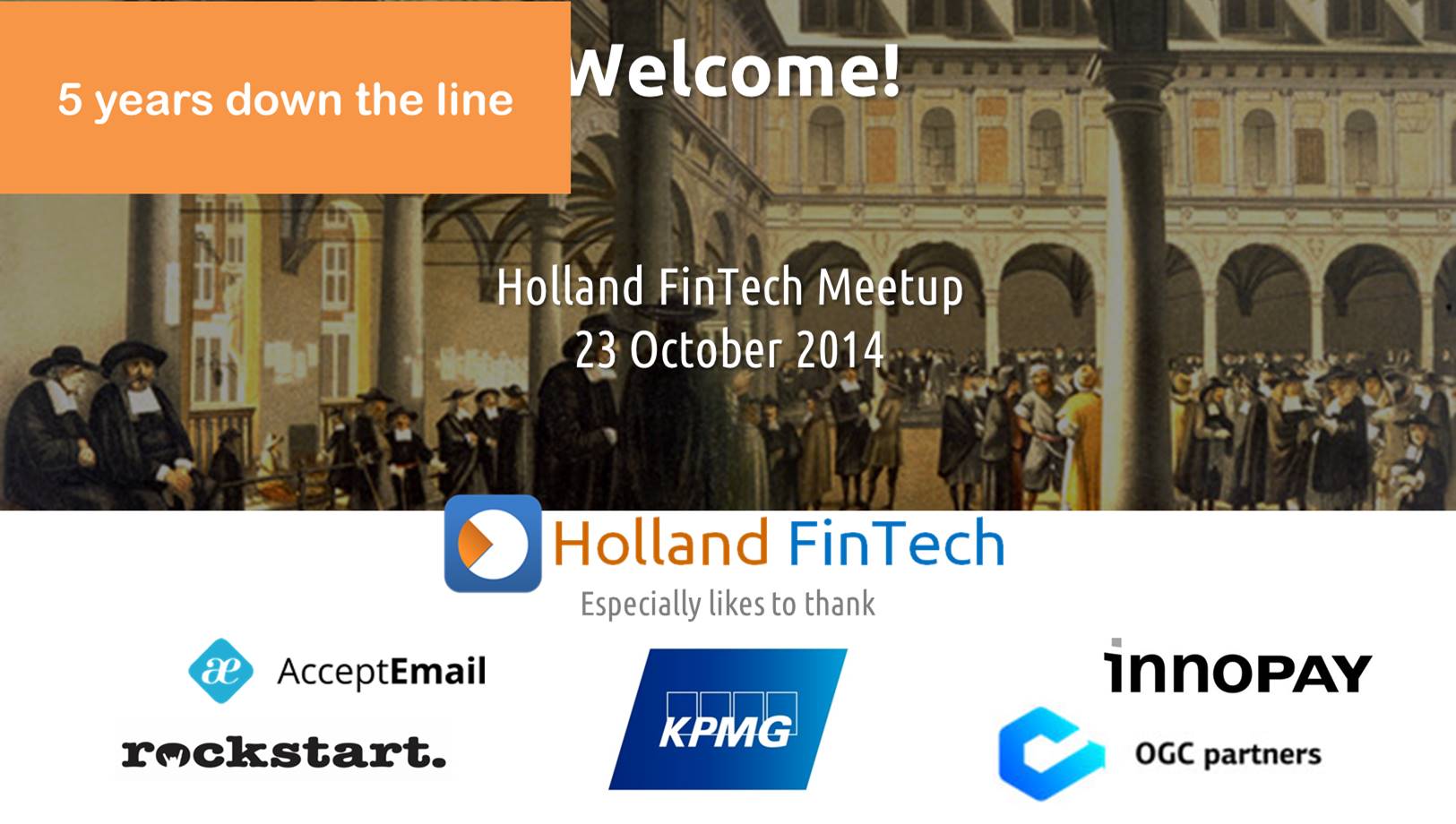Holland FinTech has turned 5 years old!
23 October 2014 we organized our first event. A wonderful milestone for our work in the Fintech community. And we are very happy to be celebrating this with our members and friends, Thursday 21 November in Amsterdam.
At our anniversary celebration, we will elaborate on how history has proven us right and wrong in our sense of where fintech developments were heading. Just like the future will prove us both right and wrong as well. It remains hard for us humans to estimate the speed of things in particular and, from time to time, how relevant certain trends are. I would like to take you through our experience with fintech over the past 5 years to analyze how we cope with topics like these … and explore what’s to come.
First of all, it is interesting to reflect on how people deal with change. There are many well-known concepts on how we psychologically cope with change, usually describing how we at first ignore it and go in denial, followed by mocking change, up to getting angry, followed by depression and then finally, hope and acceptance. With Fintech, we have seen similar development, with at first people ignoring startups targeting financial services, followed by mocking them. But when it became clear that customers were craving for fresh solutions after the financial crisis, and really liked the tech-driven, user experience-centric approach, customer adoption made it hard to ignore these companies.
A certain panic overtook the market, and discussions debating whether incumbent financial institutions would be around 5 years into the future, were very normal. After a while, people began to realize how silly this image of total disruption actually was, but there was still a strong sense of competition. And this was the trigger that got the industry moving. “Necessity is the mother of invention” proves valid in the financial industry as much as in other innovation games: an external pressure or threat is the strongest driver of change. The more extreme “disruptive” scenarios were also triggered for regulators and policymakers to start their interest in Fintech., with several innovation hubs and sandboxes as a result.
Very gradually, the attention of the market shifted towards fintech parties that offered solutions to financial service incumbents. This meant that parties offering financial products for financial services companies to incorporate in their own offering, or platforms and solutions to enhance their own capacities. Think of data analytics, security tools, regtech solutions or support with user experience design or API connectivity, up to full core-banking systems. Even the startups that offered B2C solutions began to realize that B2B2C – in other words: sales via partners - might actually be a more rewarding trajectory, as distribution to consumers and SMEs is hard and very costly. The age of aspired co-operation had begun, with one barrier in the way… how to actually work together? Something that the ecosystem is gradually becoming better and better at.
A more recent impact in the ecosystem is the discussion on specific new market entrants: the big tech firms. Both financial services related startups, as well as incumbent players, have found a common threat in the powerful digital giants from China and the USA, that increasingly take over control of the digital world we live in. And that digital world is also encompassing the financial realm. But as game-changers like Google, Facebook, Amazon, Alibaba, Tencent, and Apple come into the industry, there are always parties that see that as an opportunity…
So we are at a stage of fintech development that changes still come at such rapid pace, that predictions for the future are hard to make. Privacy and ethics discussions, the way we will deal with AML and KYC challenges, global trade distress or just a casual economic downturn easily overthrow any possible scenarios realization. It is becoming clear that the digitization of the economy is progressing, requiring solid digital financial infrastructure. From that perspective, the economic potential of fintech remains enormous and will drive forward the development of the fintech ecosystem. It allows or even requires us to direct our energy towards making a positive contribution possible and tangible. And to do that, it is essential that we keep on crossing borders to learn and co-operate. Borders within the financial industry, borders within Europe, and the borders towards other industries.
I am probably too optimistic by nature, but I am really looking forward to the next 5 years!
Don
Let me know what you think and mail me at blog@https://hollandfintech.com/.


